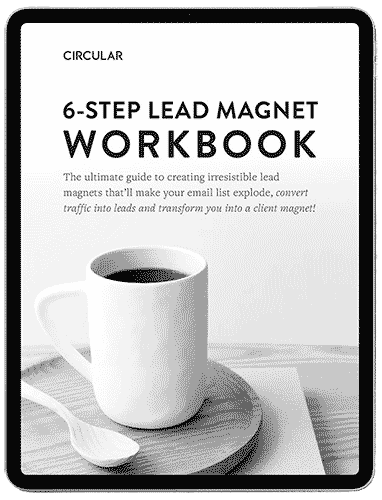The fall is open enrollment season. This is your chance to choose your benefits for the following year. If you’re getting insured by means of the ACA (Affordable Care Act), then you get the chance to change your insurance to fit your lifestyle better. If you’re starting a new job, this is for you too, as you get to choose your benefits for the very first time. Let’s address the different options you likely have available to you. These choices can affect your financial picture for the upcoming year.
The first thing to consider is whether or not you and/or members of your household are eligible for benefits. Read the eligibility requirements carefully. This is especially important if you’re signing up for ACA insurance. Your ability to enroll is highly dependent on what is available or unavailable to you at work. If you’re getting insurance through your job, your employment status (full-time, part-time, per diem, contract) determines when you’re eligible for benefits. It may also affect how much coverage you’re eligible to receive.
Medical Insurance

Medical insurance, aka health insurance, is one of THE most important benefits you can choose. If you’re under 26, covered by your parent’s insurance, and it works for you, you might be able to skip election or choosing that benefit. For those who plan to enroll, you may have the option to choose HMO vs. PPO/POS. The key differences between those plans are that HMOs tend to be cheaper to own but PPO/POS plans cover more providers. So less money comes out of your paycheck if you elect for an HMO. However, the pool of doctors you can see under your coverage is smaller. If the doctors you routinely see are covered under your HMO plan, then this is very little downside to choosing that option. If you want a greater variety of doctors to choose from, you are better off with a PPO/POS plan.
Things to Consider
Some other things to consider: your copay, deductible, out-of-pocket maximum, and coinsurance. You pay a copay every time you see a doctor or visit an emergency room without getting admitted into the hospital. Pay close attention to how much your copay costs where. With some insurances, your primary care doctor‘s copay is cheaper than when you see a specialist. Others, it costs the same regardless.
Your deductible is how much you have to pay yourself before your insurance kicks in to help pay your healthcare bills. The copays you pay usually don’t count toward your deductible so keep that in mind. Coinsurance is how much you pay for your bills after your deductible is met. This is usually a percentage, hopefully 10-20% or lower. Just to clarify, if your deductible is $500, any bills submitted to insurance is yours to pay 100% until you have paid $500 of your own money. Once you’ve reached that $500, then that percentage drops to whatever your coinsurance is. If it is 10%, then that’s how much of the rest of the bills you will pay.
Your out-of-pocket maximum is the limit you’re allowed to pay for the year. If you have other people on your plan, then pay attention to both the individual and family maximum. Once that it met, the plan will usually cover 100% of the bills after that. Remember, your copays do not count toward this usually. Use this information as a foundation to make an informed decision when choosing which insurance plan works best for you and your family.
Other Health Benefits
Vision and dental may be listed as individual benefits you can choose outside of your medical insurance. I find that bizarre since they all affect your health but that’s neither here nor there. When it comes to vision, there may be some overlap in coverage for routine checkups. For example, my eye doctor is covered under my medical insurance. I just pay my usual copay. However, if I saw a doctor covered by my vision plan, it would be covered completely. Check your medical plan to see what it covers if you don’t want an overlap in coverage. If you or members of your family use this benefit often, then you may want fuller coverage by having a separate vision plan. They usually don’t cost much.
Dental insurance is a whole separate animal majority of the time. However, if you or members of your family don’t need anything more than the routine exams with cleanings twice a year, it may be worth it to count the cost. Compare how much a routine visit will cost you with insurance, as well as the monthly cost of having it, versus just paying out of pocket. You can call your dentist billing office to find out how much it will cost without insurance aka self-pay.
Health Spending Accounts
FSA (flexible spending account) or HSA (health savings account). These accounts allow you to put untaxed money towards medical expenses. So before your paycheck gets taxed, you can choose how much to tuck away. Taxes never touch this money! There is usually a time limit to when you can use it. So it’s a good idea to take a tally of how much your family spends in a year in medical expenses to estimate how much you should put into your FSA. They usually give you a debit card to use but I just charge my expenses to my credit card so I can earn points/cashback. Then I submit my receipt to my FSA and they deposit the amount into my checking account.
While anyone can make use of an FSA if your job provides one, HSAs have different eligibility requirements. You have to have a high-deductible plan as determined by the provider. The key benefit of this is that you can use HSAs to invest. So the money that goes in is tax-free, gets to grow tax-free, and you get to take it out tax-free for medical expenses. If you have this available to you, there’s a lot of advantage here that you should look into.
If your job provides a health reimbursement account (HRA), you can take pleasure in knowing your job will pay you to take good care of yourself. Your job will fund this account based on tasks they would like for you to complete, like getting your annual physical done or joining a gym. You can use this money to cover out of pocket medical expenses and more. This money typically does not have an expiration date like the FSA. So as long as you remain employed, that money is available to you.
Supplemental Coverage
There are other benefits you can choose to help you financially if you find yourself in a pickle.

Short-term disability
There are minimum working hour requirements to be eligible for your job to pay for this benefit. Short-term disability (STD) is a form of income protection. Ever heard of Aflac? Same idea. If you are unable to work for over a week and you meet the state’s requirements for disability, you will get paid a percentage of your salary. There is a time limit on this, hence the short-term aspect of it. This may vary by state but in New Jersey, it appears to be 26 weeks.
You can choose to pay into supplemental STD insurance. This is especially beneficial if you don’t have enough sick time to cover you during a leave of absence.
Long-term disability
Long-term disability (LTD) insurance covers you after the time limit has run out on your STD benefits. Whether or not your job pays into this depends on your employment status. Not all jobs pay into this benefit for all full-time employees so get familiar with the requirements at your place of employment. If they don’t pay into this benefit, you usually can choose to pay for this benefit.
Life And AD&D Insurance
If you work full-time, your job may pay into coverage for you. They usually use your annual salary to determine how much your beneficiaries would get if you were to pass. Important reminder to choose your beneficiaries and keep that list up to date! This coverage ends if your employment ends or your employment status changes to where you’re no longer eligible.
Your job may also provide you the opportunity to pay for additional life insurance. Important: if you pay into life insurance, make sure you can take it with you and clarify if it’s a whole or term life insurance policy. The benefit of doing this through your job is that it may cost less than if you went searching for a policy on your own. Another price comparison opportunity here.
Miscellaneous Insurance
Your job may or may not provide the following benefits to choose from.
Critical illness insurance help with costs associated with a serious diagnosis. They pay you a lump sum of money for conditions like heart attack, cancer, or stroke. You usually pay for this yourself.
Accident insurance helps with costs associated with an accident regardless of where and when it occurred. They pay you a lump sum of money for direct or indirect costs incurred by an accident. Take a look at what they cover. Having this coverage may make you more comfortable increasing your PIP deductible on your car insurance. This can save you money on your car insurance.
Miscellaneous Benefits
Some jobs will have legal assistance as a benefit. You pay like $20 a month and have access to lawyers for almost anything. When I got speeding tickets, my mom would get one of these lawyers to help. When we bought our condo, we used a lawyer in the network to save thousands of dollars on attorney fees. Anything you can use a lawyer for, you can likely find someone in the network to help you for free or a steep discount.
Take your human resources department’s information home and go over it with your family. Make sure your dependents are covered by the benefits you choose. Don’t just let whatever you chose in the past rollover into the next year. Be intentional with your choices and crunch the necessary numbers. Do your research and reach out to your human resources department for your questions.
What benefits do you have available to you that aren’t listed here? Any options available to you that you don’t understand? Share in the comments below.
Follow me on Instagram @ourgreenlifenj for daily personal finance and health tips in stories.

